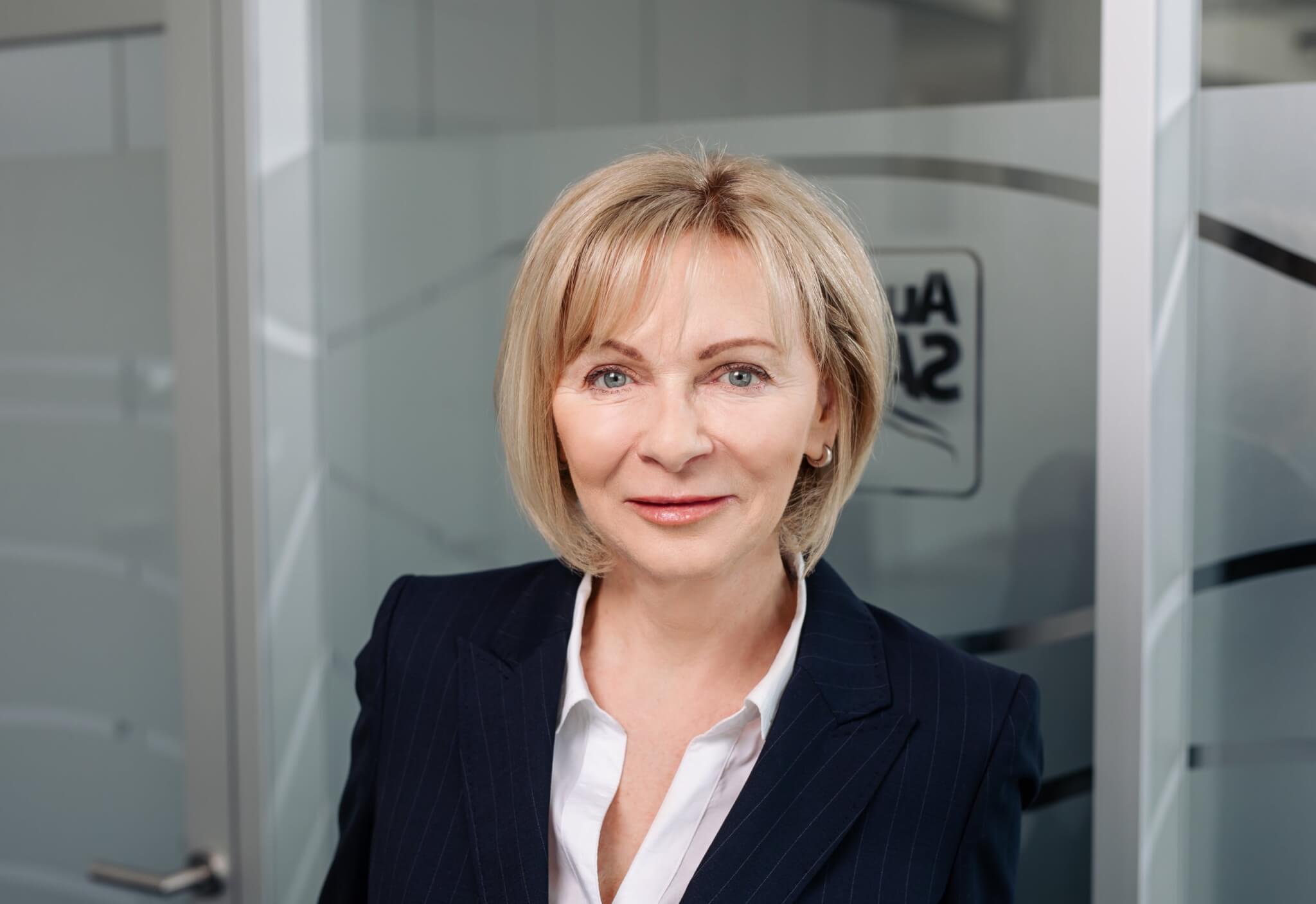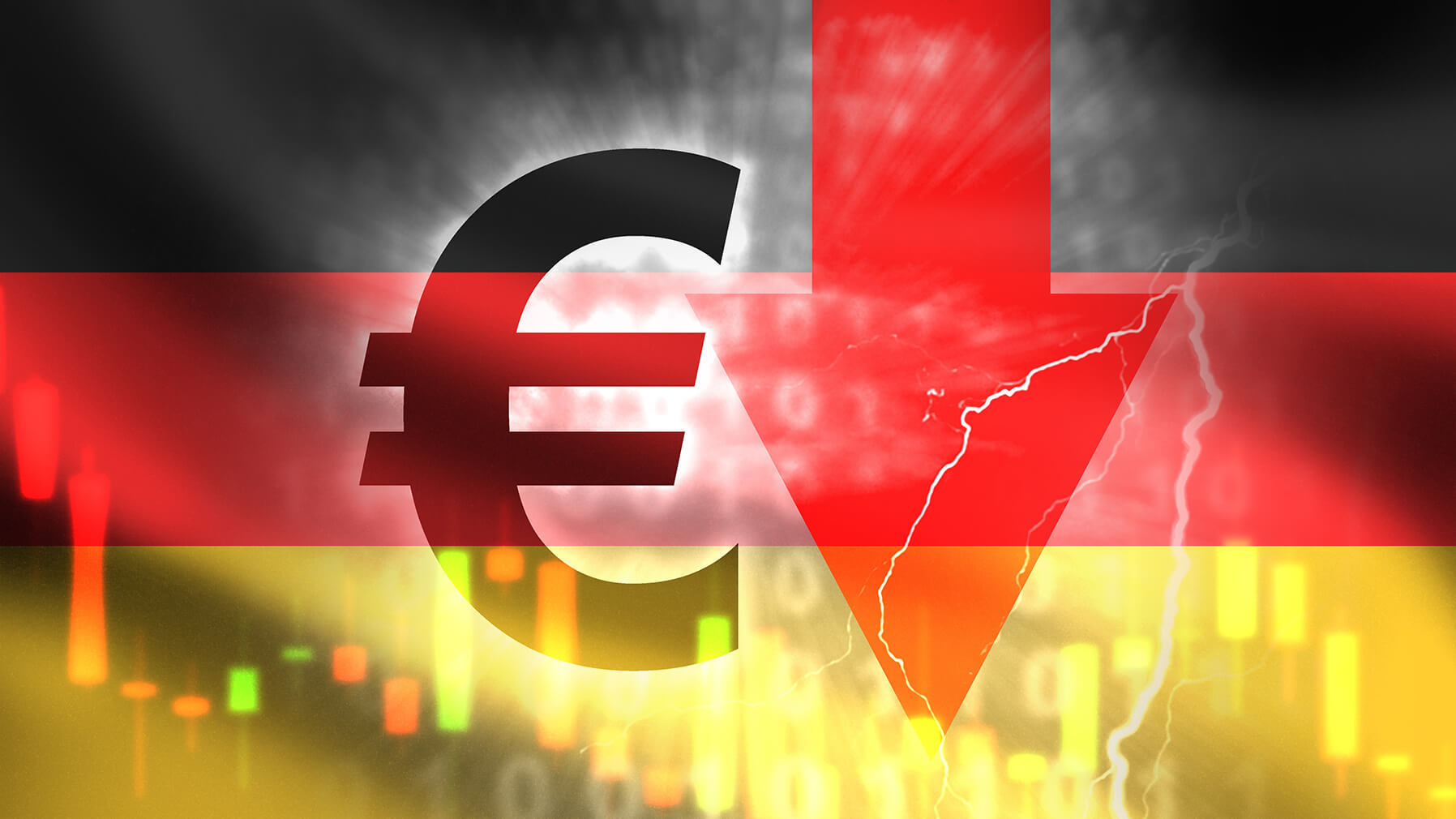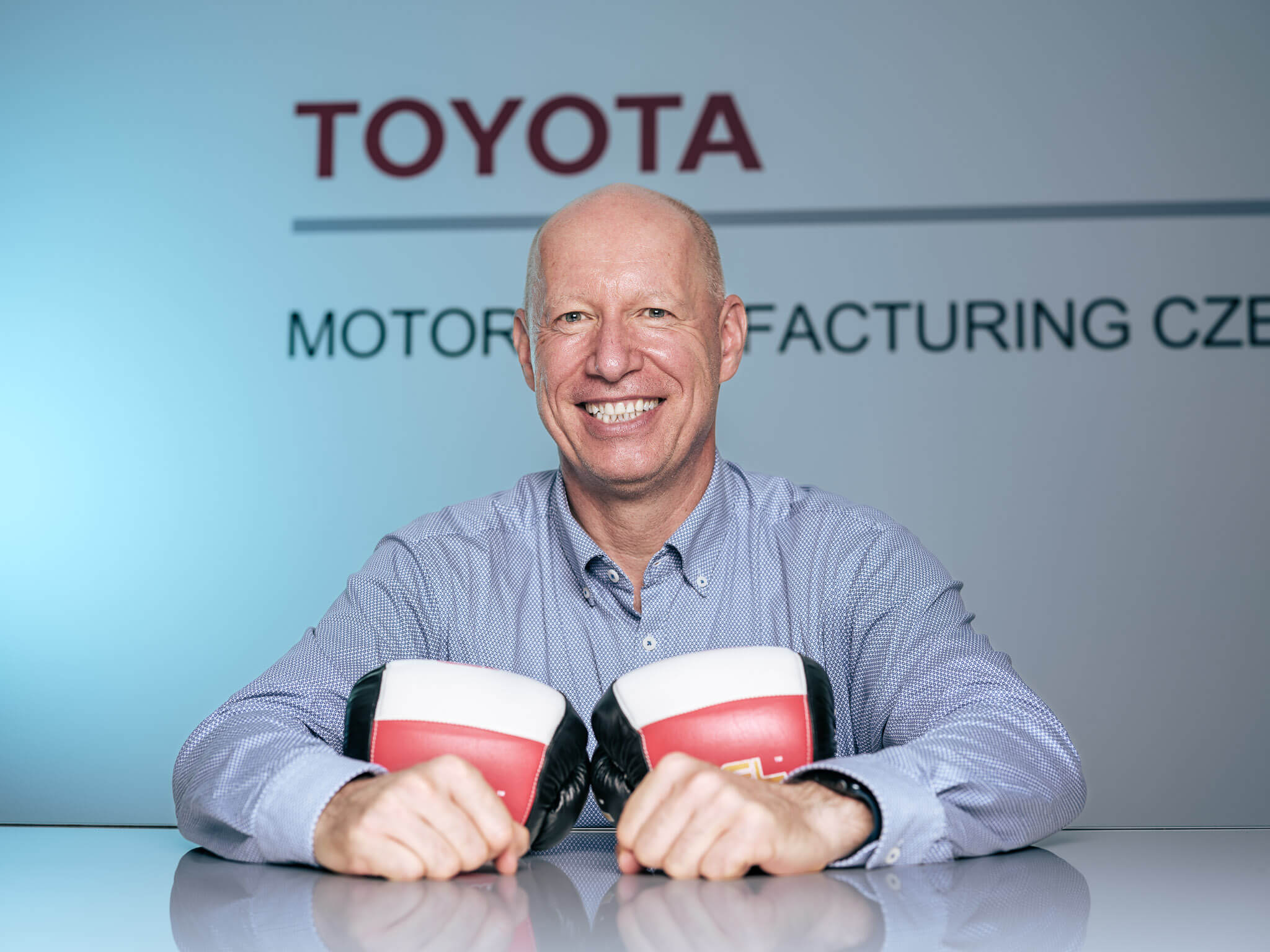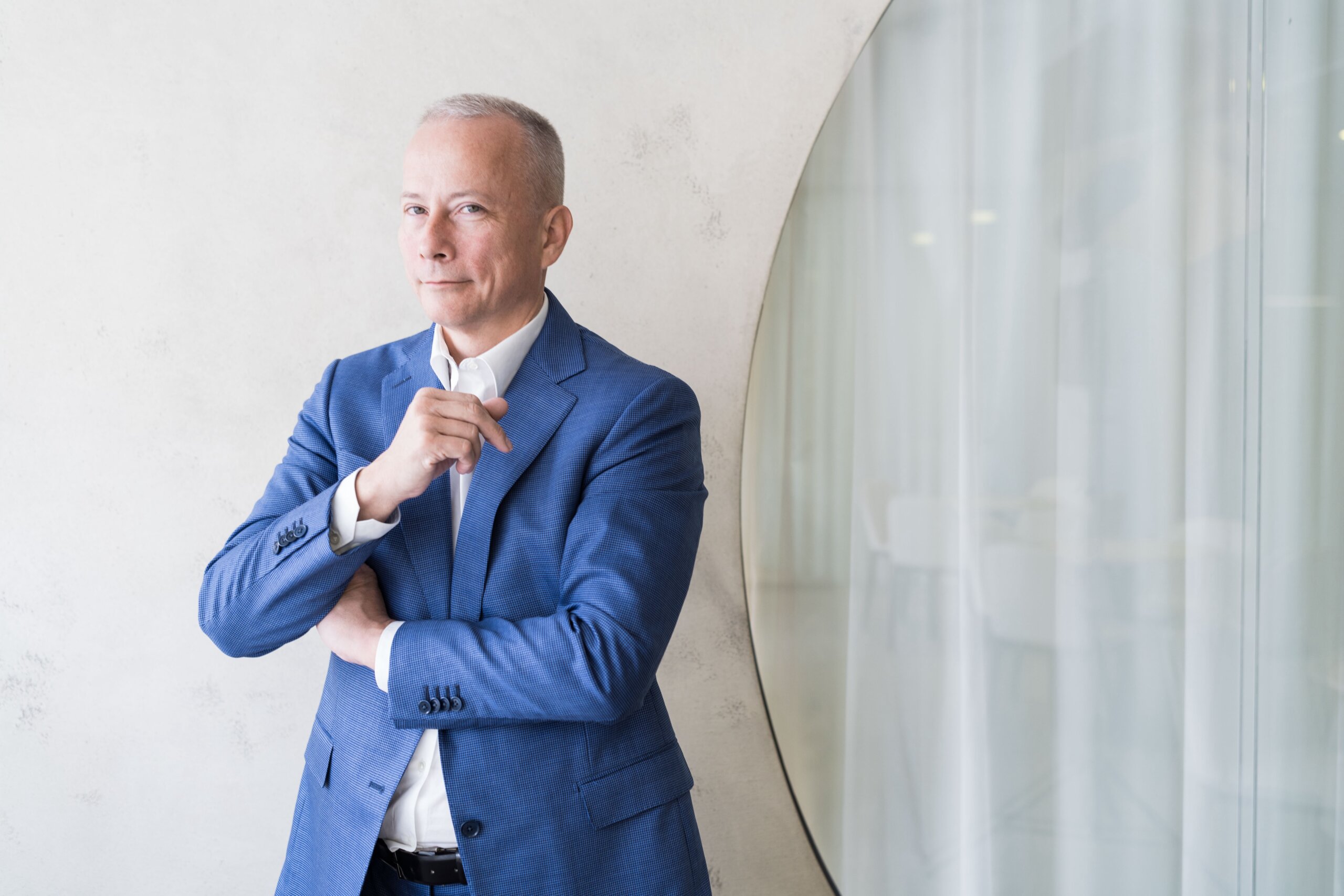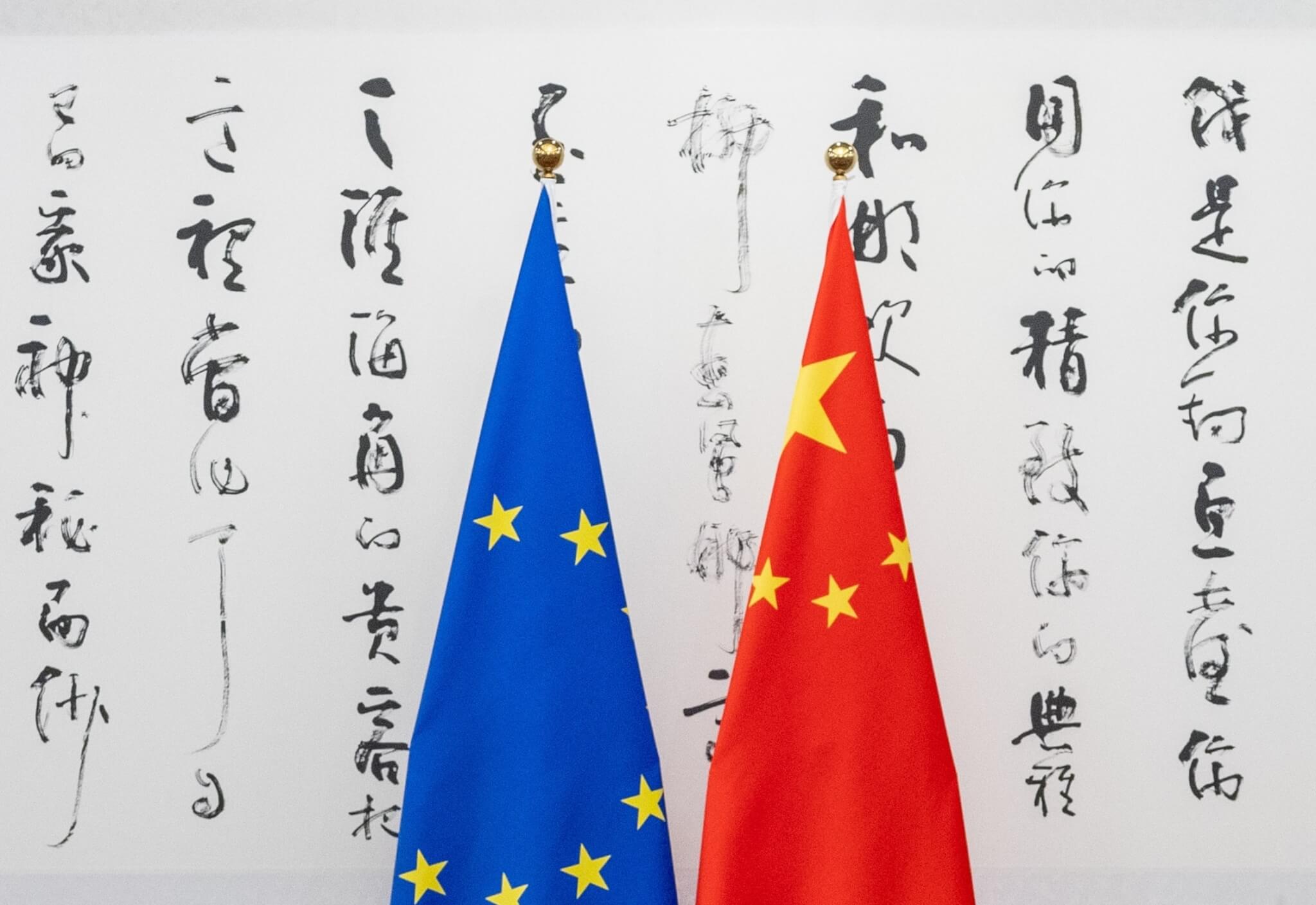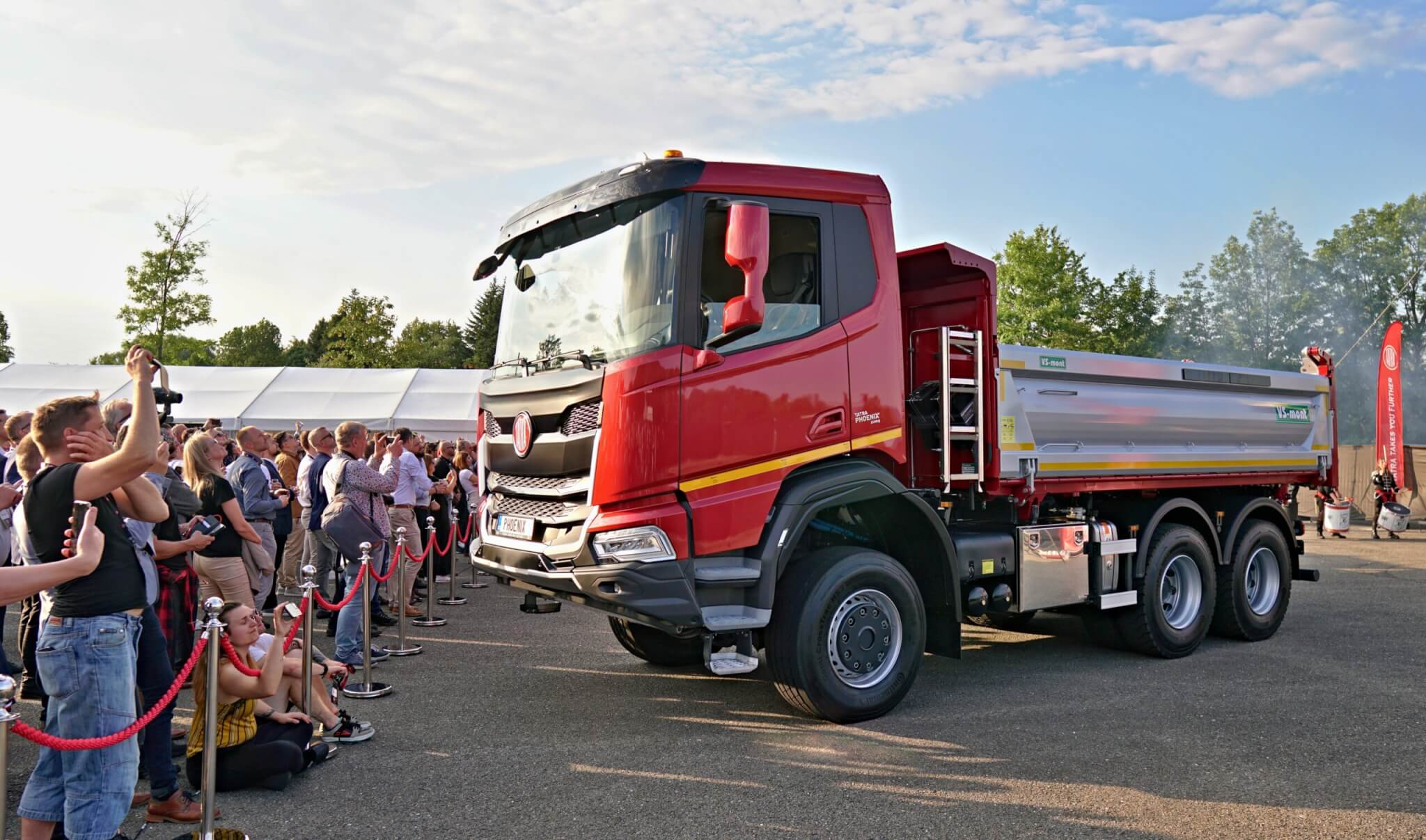It has shown that in the European Union, even a medium-sized country can achieve something and influence legislation to its liking. It takes hundreds of hours of work and considerable diplomatic effort. After all, was it not possible to achieve an even better result in the negotiations on the form of the standard, which further tightens the requirements for car emissions? And is Euro 7 ultimately beneficial? Czech Car Industry magazine spoke to Transport Minister Martin Kupka and MEP Alexandre Vondra, who is a member of the European Parliament’s Environment Committee and was the rapporteur for Euro 7.
Of course, I know that Euro 7 is far from the only area you have been working on in the past months, but still: How does it feel when it is over? Victoriously fought.
Martin Kupka (MK). It has also increased the respect of the Czech Republic abroad.
Alexandr Vondra (AV). I remember how we used to joke that Czech politics in the EU has two phases. Phase number one was “nothing can be done yet because negotiations have not started” and then it immediately jumped to phase two, “nothing can be done anymore because it is finished”.
And here was a year of intense work where we built and held together a team of states, found a political majority in the European Parliament and finally got what we needed through. In my opinion, this was a model example of how the Czechs should do it, although I am not saying that it works for everything. The advantage here was undeniably that we have large interests in the automotive industry and we know countries that are in a similar position.
MK: In addition, we have also shown that when we disagree with something in Europe, our attitude should not be one of mournful resignation, but rather one of active participation. That is what responsible membership of the European Union means – influencing things that will ultimately benefit the EU. With the Euro 7 standard, that was undoubtedly the case, because with the negotiated version, the European car industry is less handicapped and less cornered.
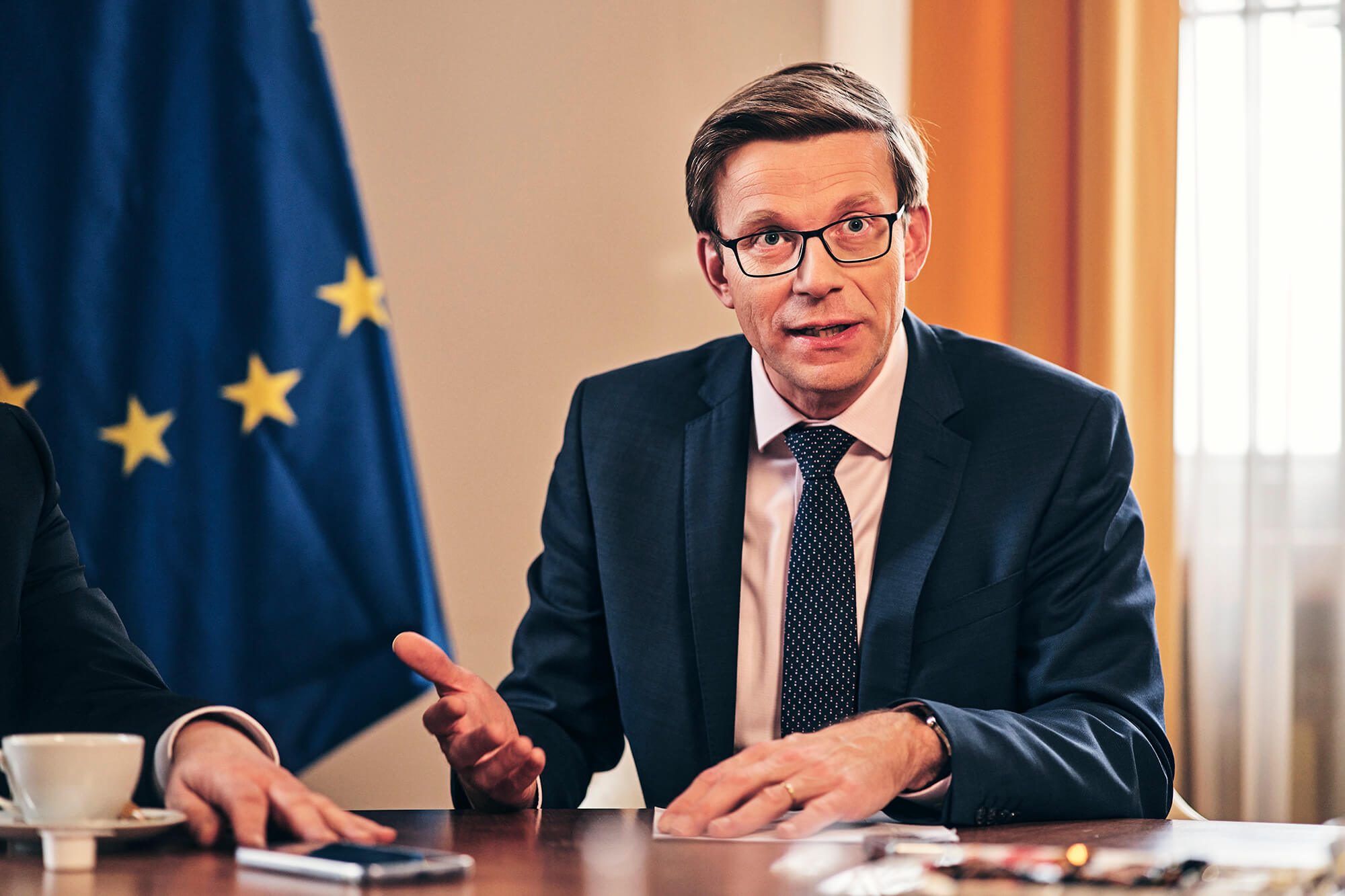
We have shown that when we disagree with something in Europe, our attitude should not be one of mournful resignation, but on the contrary, an active stance, said Transport Minister Martin Kupka at the beginning of the interview about Euro 7. | Photo: René Fluger
Is it possible to say that this is the best result that could have been achieved in the given situation?
MK: Yes, it is definitely the best possible result under the circumstances. It was negotiated until the last moment and changes were made until the last moment.
AV: The Czechs know how to swear at home and then we keep quiet in Brussels. This may bring some sympathy among the domestic public, but when the accounts start to be settled, when the effects of legislation start to be felt, we end up losing. So if you really want to make a difference, you have to communicate, cooperate and even ‘exchange things’, because politics is about ‘something for something’. And sometimes you also have to compromise. So I can imagine a multiply better outcome, but it was untenable.
You managed to bring together a group of like-minded countries, which ultimately led to success, with some countries changing their positions during the negotiations. How difficult was that and what compromises did you have to make?
MK: The group of like-minded states was formed in Strasbourg in March 2023. There were eight of them and of course there were various initiatives to break their unity. Thanks to our contacts in Brussels, we kept our finger on the pulse of events and made sure that no one fell away from the group and that we were able to maintain some common direction. A significant role in this was played by a document which, ironically, is called “nonpaper”.
What was that?
MK: It was a statement of the basic demands of eight like-minded states, and we agreed on it. This “nonpaper” then played an important role in the negotiations within the EU Council, because, among other things, in the EU it is true that whoever has the “paper” has the agenda. This document was then often referred to by the Spanish Presidency.
AV: It is important to map out in advance who has what interests. The European Commission’s original proposal threatened to do two things: it would have caused another major crisis in the car industry, and it would have made cars less affordable for middle- and low-income people, because car companies would have immediately phased out combustion-engined cars in the lower categories.
It turns out that France, Italy and some other countries that have a strong car industry are of the same mind as us. And against us was a second group of countries for which the car industry is not so important – the Netherlands, Ireland, Belgium and others.
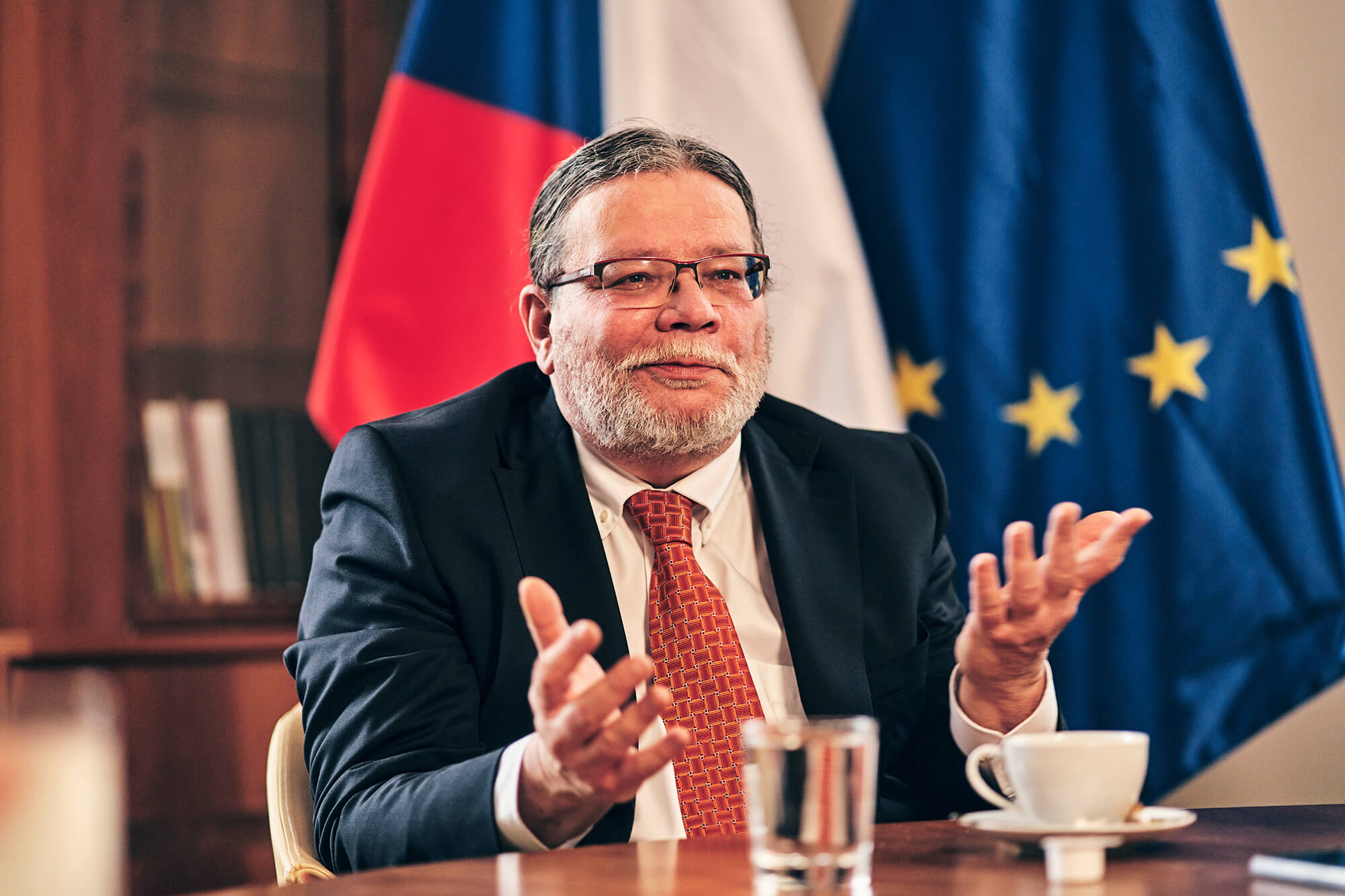
It turns out that France, Italy and some other countries that have a strong car industry are of the same mindset as us. And against us was a second group of countries for which the car industry is not so important – the Netherlands, Ireland, Belgium and others, explained MEP Alexandr Vondra. | Photo: René Fluger
The big unknown was Germany, which has the strongest automotive industry of all countries and logically should also have a problem with the initial proposal. And we also heard that from some of the car companies, as well as from the CDU-CSU or the FDP. But given that the German government also has the Green Party in its coalition, which is generally bad for the car industry, the government was paralysed and unable to take a clear position. With Germany, we would have been able to build a simple blocking minority. On the other hand, Germany’s attitude motivated countries like France and Italy to cooperate with us all the more.
MK: But Germany played an important role in the end, because at a crucial moment it said it would not join the original proposal. It was not clear that they would join ours, but it was a signal to us that we had a chance to succeed.
As has already been said, it was a political problem as far as the interests of the individual countries were concerned, and France and Italy in particular were very well aware of this. If a significant part of society could not afford to buy a car and could not get to work, to school and so on, it had the potential to threaten a certain social balance and consensus.
In the end, when some countries or MEPs changed their positions, was it mainly due to the data, calculations and arguments presented on how a stricter Euro 7 standard would affect the automotive industry? Or was it more of a quid pro quo, as you have already suggested?
AV: It’s not about data in Parliament, let’s not kid ourselves.
It’s more about simple political signals. I knew from the start that if I wanted to push for change with the Greens/EFA and the Socialists and Democrats, it would be a road to defeat. So I went straight to the Frenchman Pascal Canfin, who is the head of our committee, and I told him straight out that I needed his support. He is from Renew, he is also a Green, but there were two factors that played in my favour.
The first one was that I-as a well-known amateur ornithologist-voted as the only right-wing member of the other Renew legislation, and my vote was pretty important. So it was a bit of a bargain.
The second factor was that Canfin was under pressure from the Elysee Palace, that is, from its government, to end up with some reasonable compromise, because the French car industry and the French consumer have exactly the same interests as we do.
So we agreed and then it was just a question of who was going to talk to ID (Identity and Democracy), which is Matteo Salvini and Marine Le Pen, and Pascal Canfin did not want that. But I knew that the Le Pen people were actually also under pressure from Luca de Meo, the head of Renault, so it was a foregone conclusion that Italy would go with us and that we could win.
MK: At the beginning of the coalition building within the Council it was different, arguments and analysis played a bigger role there. Also thanks to the activities of ACEA and AutoSAP, we were well equipped to convince the representatives of the individual countries not only that there was a risk of limiting the availability of cars, but that this would ultimately be counterproductive for the environment, because more older vehicles with worse emission parameters would remain in service.
AV: There was one other factor, which also relates to green politics and the French. The Euro 7 standard, as it was finally approved, meant two innovations in particular. It does not introduce further regulations for cars with internal combustion engines, but it introduces controls on brake and tyre scuffing for all cars regardless of whether they are electric cars or cars with petrol or diesel engines. This makes sense, because microplastics and heavy metals released by abrasion are a problem. In fact, that was also a condition of the French to keep it within the standard. And you know why? Because they have the technological solutions. So on the surface, it may look like a fight about “some values”, but behind that is hard lobbying for their own business.
MK: There were also companies that were very interested in keeping the original version of the directive. The adoption of any important legislation causes fierce conflicts and it is necessary to know who has local interests, what they want to promote for their industry or what they want to protect it from.
There is nothing wrong with that, it is just a matter of keeping an eye on everything and seeing if there is a ‘counter-current’ forming somewhere.
Our Permanent Representation in Brussels has also played an important role in this by keeping in constant contact with us and organising regular meetings between like-minded countries.
AV: In particular, I have to praise two diplomats at our Permanent Representation: Lucie Šestáková, the Permanent Representative of the Czech Republic in the Committee of Permanent Representatives of the Member States in the Council of the EU, and Veronika Smolková, who is in charge of industry at the Representation, including improving the regulatory environment.
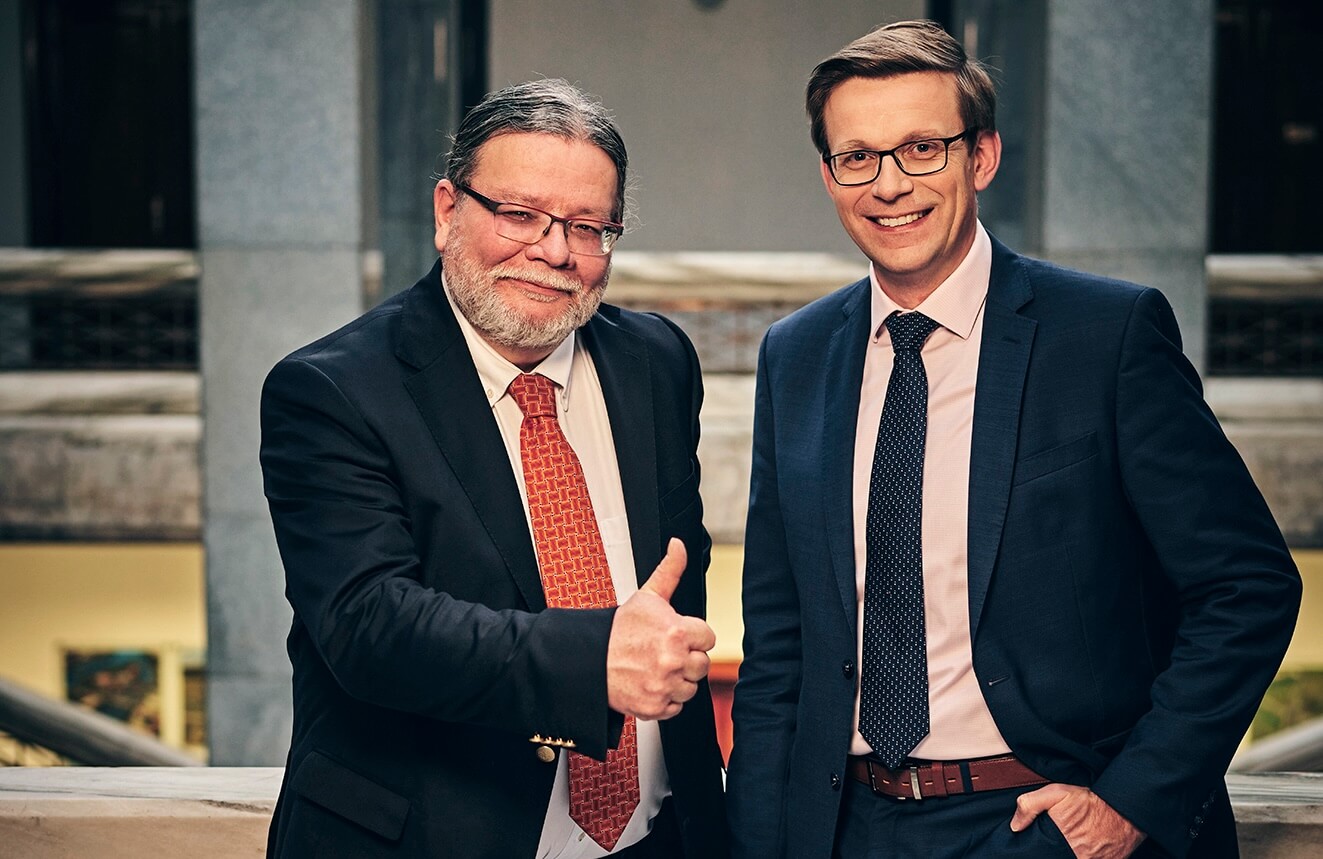
Our Permanent Representation in Brussels has also played an important role in the whole process, maintaining constant contact with us and organising regular meetings of like-minded countries. In particular, I have to praise two diplomats Lucie Šestáková and Veronika Smolková. | Photo: René Fluger
What role did the Spanish Presidency play in the negotiations?
MK: The Spanish, of course, with their strong automotive industry, were interested in softening the standard, but they couldn’t make that very clear – as the presiding country they had to be more of a moderator than a voice. But it was as the presiding country that they used our expertise, which was often in great technical detail. Particularly when everything was at the final stage, when everything was being debated between the Council and Parliament, it paid off many times over that the Spanish had a sophisticated position from us – especially as there was no other concrete proposal on the table. What is more, as I have already mentioned, the position suited Spain.
AV: The dilemma was whether to rush the conclusion and get the trilogue (the meeting of the representatives of the EP, the EU Council and the EC) under the Spanish Presidency or to wait for the Belgian Presidency. Our coalition of automotive countries was clearly in favour of getting it done under the Spanish Presidency. Although the presidency has to maintain a certain decorum, we were a little worried about the Belgians.
Did you have a feeling of confusion at any time? Did you ever tell yourself in between that things weren’t going to turn out well?
AV: No, I didn’t. When Martin Kupka was trying to organize some kind of blocking group of states in the beginning, there was another thing that was being addressed at the same time, and that was the possibility of using synthetic fuels in internal combustion engines. The diplomats who were in charge of that at the time were a little bit scared about it. But when I saw Martin Kupka not being afraid to go for it, I thought we can do it.
Have you, Minister, never felt hopeless either?
MK: There was no room for it. When you’re fighting, you can’t allow yourself any slip-ups. What is more, it was a lucky coincidence that Sasha Vondra and I are from the same political party, we know each other well, and when we needed to discuss something informally and quickly, we were always in touch.
I also had the advantage of having someone to rely on professionally, someone to consult with.
How important was AutoSAP support to you?
MK: Definitely very important, from the first to the last moment. The directive is incredibly technical, and figuring out where the dog was buried, why it couldn’t be done, and explaining it in human terms was a huge amount of work. AutoSAP was able to deliver the expertise quickly, pull out what was wrong and back it up with the necessary data that showed the original proposal to be unrealistic. It was a great help in negotiations with EC representatives and colleagues from other countries.
AV: It was exemplary cooperation on all fronts.
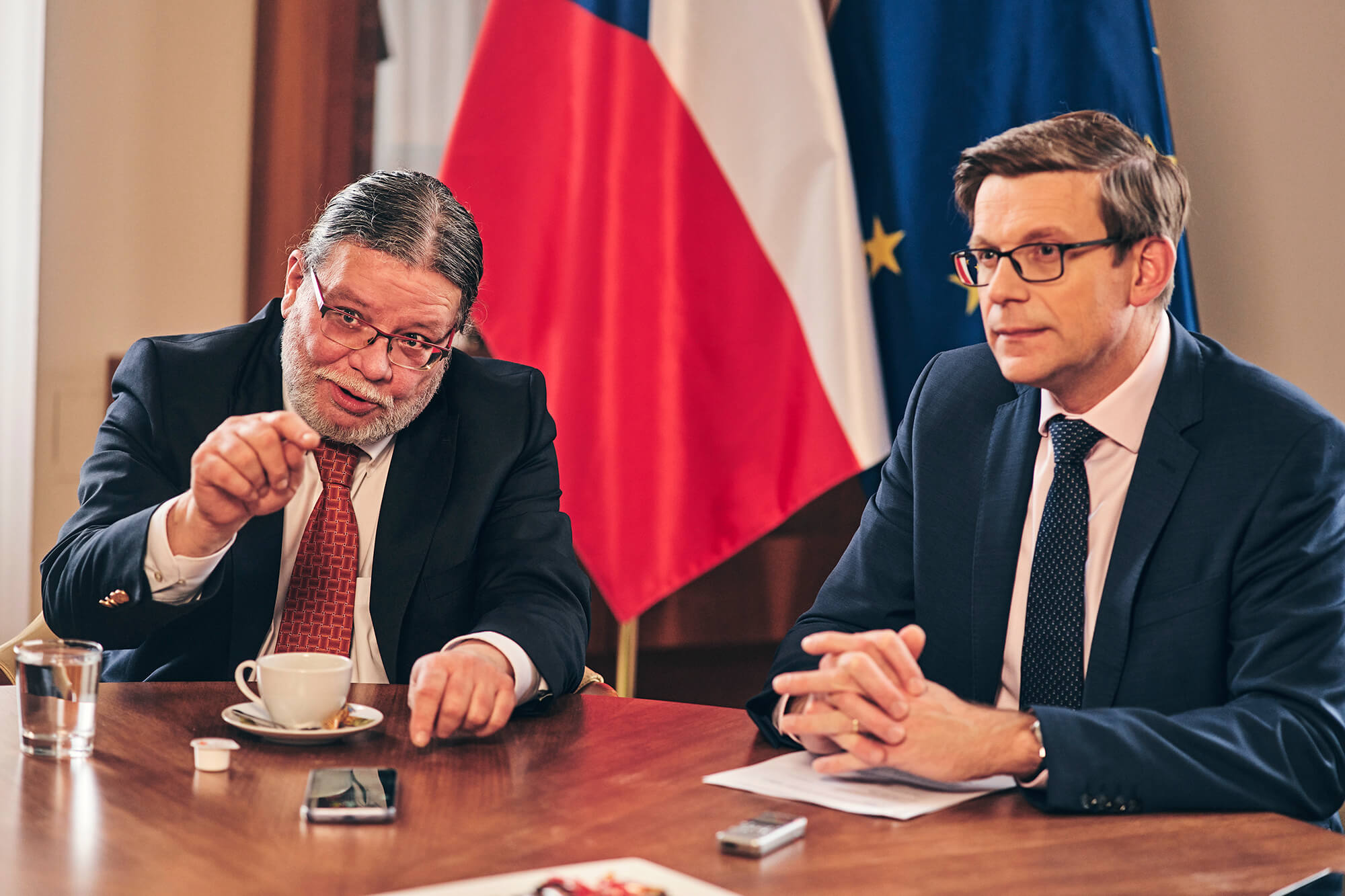
AutoSAP’s support has been very important to us from the first to the last moment. It was an exemplary cooperation on all fronts. | Photo: René Fluger
What about ACEA, or the individual European car companies? Initially, they did not seem to be concerned about the standard.
MK: ACEA was asleep for a long time. The EC published a proposal for the Euro 7 standard in the first half of November 2022, under our presidency. For us, it was really questionable whether we, as the presiding country, could afford to come out with a clearly negative position. However, AutoSAP helped us with further analysis and, although there was some risk involved, before Christmas, during the Czech Presidency, we clearly formulated a distinctly negative position.
We were in contact with AutoSAP from the beginning, ACEA woke up later and we also started an intensive professional debate with them at the beginning of 2023 – especially with President Luca de Meo, we started to coordinate our actions.
In some contrast to our position, we heard from managers of some car companies who said that they were actually not that bothered by the standard, that they would adapt. That was surprising to say the least.
Which car companies were they?
MK: I wouldn’t like to name them. It’s just that for some managers the primary motivation is to meet KPIs (key performance indicators). When regulation changes, they redo the KPIs and set new boundaries.
This has bothered me a lot, but it’s not just about the Euro 7 standard. If the natural urge to explore, to venture into uncharted territory, to take risks, to fail now and then, disappears from the automotive industry and from companies in general, we cannot do well in Europe. That is a sign of the end. If we allow ourselves to be gripped by regulation, it actually suits us because it frees us from uncertainties and guides our hand… This, in my opinion, is the greatest risk to Europe’s future success.
AV: As a reporter for the standard, I had the opportunity to visit a number of European car companies during that time who were interested in talking about it. Their view was identical to mine; they saw that it was a bad proposal, that the policy that the EC was pursuing was wrong and would play into China’s hands.
From Skoda, we had excellent cooperation both with Martin Jahn and the engineering team led by Martin Hrdlicka.
As far as ACEA is concerned, there was good cooperation with Luca de Meo, who is also the head of Renault, unlike the previous president of the association, who was Dutch. He helped a lot to keep the French, the Spanish and the Italians on a common position.
MK: Luca de Meo was able to describe the critical points of the European car industry very accurately and openly, pointing out the fatigue that can be seen in the European car industry – and actually provoking a greater reaction from other car companies. That was an important point.
Was there an incident during the Euro 7 negotiations, even a non-working one, that stuck in your mind? A “funny story from the shoot”?
MK: I have one. We managed, with great effort, to convene the first meeting in Strasbourg, which was attended by the transport ministers of Germany, Italy, Poland and others were remotely connected. We flew there from Prague on L410 from Kbel, but there was a breakdown on the plane and we had to return from Karlovy Vary. In Kbely we got a new plane, and it was modified for parachutists, there was no other available. The meeting went well, successfully, and when we returned we flew through an incredible storm, so we regretted for a while that we didn’t get parachutes for the trip. Just an adventurous trip in every way. The pilot told us later that there was nothing more to experience in the air.
Maybe the same applies to the negotiations around Euro 7, I guess there’s nothing more to experience in European politics either. But here in a positive sense: A medium-sized country has managed to influence and complete important legislation to its liking.
AV: When I decided right at the beginning that we would bypass the Socialists and the Greens in the EP, the Greens accepted it and did not even attend the meeting anymore. I also met with the shadow rapporteur for the Socialists, Christel Schaldemose, to tell her, but it was more complicated there. She is an activist in body and soul, a fighter for the repair of the world in all respects. She began to argue that, on the contrary, if we do not tighten up the proposal, there will be thousands of deaths and so on. She kept going to meetings, fighting – and losing. When the fight was over, she came to me and said, “Alexander, that was a masterpiece!” And when you’re told that by that kind of opponent, it actually makes you happy.
When you look back on it all, such a huge amount of work and yet…
MK: … do you mean “actually such a stupid thing”?
No, it’s just that maybe it could wait, give the car companies more time and link it to some future legislation, maybe from 2035.
MK: We didn’t initiate that, we had to respond to the proposal. But in general, I believe that the European Union should have fewer regulations. The desire of bureaucrats to add more and more limits is unfortunately creating more complications than it should. And this standard has shown that.
But having done so much work on it, we are trying to find something positive about it. And there is one thing that makes sense. Tracking the abrasion of solid parts from brakes and tires is something that has a positive response even at the professional medical level. At the same time, when we have managed to remove the tightening of CO2 emission limits from the standard, I dare say that there is some benefit to be seen.
With that said, most of the effort that could and should be applied to something that drives things forward and develops something had to be applied to prevent something.
MK: Yes, a lot of that energy was actually in the braking effect.
AV: You’re absolutely right. I said right at the beginning to Frans Timmermans (Vice-President of the EC until August 2023, chief ideologue of the Green Deal) that we don’t need that standard. But he was convinced that he had to make that struggle, that it had some symbolic value for him in relation to the future.
This relates to the whole issue of electromobility. Just to be clear, I have nothing at all against electric vehicles, for example in cities, if the infrastructure is there, it makes sense. What I really hate to death, however, is the EU’s attempt to always octroi one solution, one way of living. Please don’t do this.
Let us resist creating monopolies, let competition, multiple solutions and the market always come into play, and let consumers show what they prefer. For example, some places will be better off with synthetic fuel cars, others with hydrogen, especially if it is produced from nuclear, as the French are planning.
MK: I am of the opinion that not only should we preserve the space for choice, but we should also actively create opportunities for further development. And that’s actually even more important, that’s what responsibility for future development looks like.
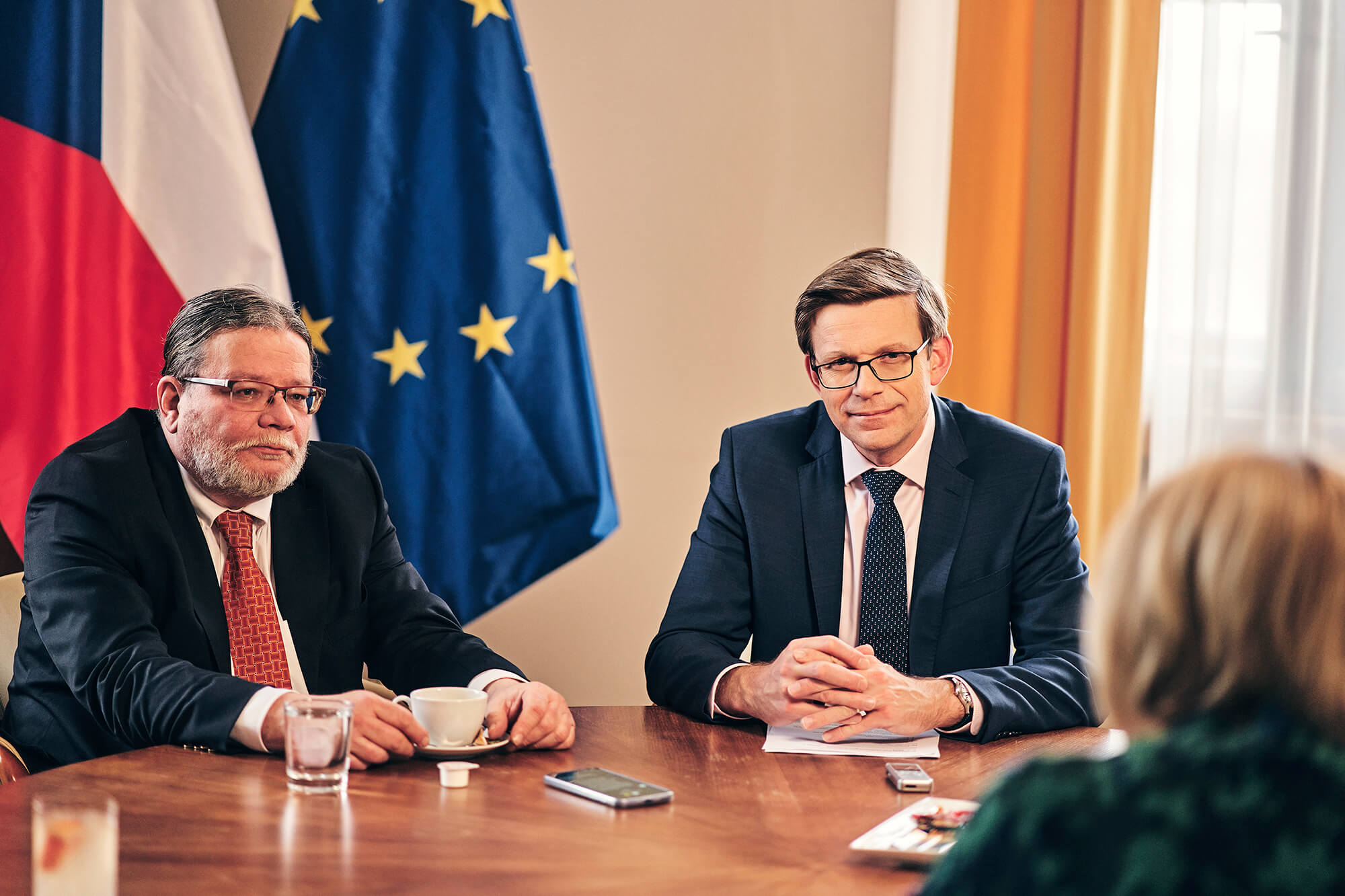
Two key figures in the Euro 7 negotiations – MEP Alexandr Vondra and Transport Minister Martin Kupka. | Photo: René Fluger
The European Parliament and the Council tentatively agree to strengthen the CO2 emission standards for newly purchased trucks and buses. These are also quite ambitious targets to be achieved. What is your assessment of the standard at this point?
MK: We have taken advantage of our alliance with France and we have achieved some modest changes, but really only modest changes, because it has become clear that we have no potential for stronger allies in the case of this directive. We managed to achieve a relaxation for urban buses, but there was no more that could be done here.
AV: In the EP, it is always decided who the rapporteur is. And here the rapporteur for this standard is Bas Eickhout, a Dutchman from the Green Party, for the ENVI committee. The German CDU could have prevented this, but they missed the opportunity. This reduces the chances of achieving a more rational result.
What else does the EC expect from the automotive industry in the near future?
MK: We certainly need to keep an eye on 2026, when the adequacy of the ban on the sale of new cars with internal combustion engines in 2035 will be evaluated. If I have the opportunity in government, I will raise again the question of whether this is really necessary.
In 2026, there will be a new EC and a new EP. Which could mean that the debate would be …
MK: …more sober and more rational. That after this year’s European elections, it might be possible to bring some sanity back into the debate and to take a more sober look at what we actually face and what we will face in confronting America and China in the automotive sector.
So you expect the next Commission and Parliament to be less green?
AV: Absolutely, because the Green Deal has already started to hit the wallets of the richer Germans, French and Dutch. And finally, we are seeing what is happening in some countries, and this will be reflected in the Euro elections, there will be a shift away from the green-socialist radicalism. So I believe in a correction, I believe that the next EC will be more realistic and that the composition of the European Parliament will be more realistic. It will not be a revolution, just a shift towards greater rationality.
MK: I would very much like to see the Green Deal stripped of its activism and made realistic in its implementation. All the developed countries of the world are counting on some form of the Green Deal, and Europe cannot abandon it either, but it must not pursue it in a self-destructive way.
AV: We must return to the golden rule of sustainable development, which is based on a balance of three areas: environmental protection, economic opportunity and social sustainability. In the last four years we have been out of balance, only the first has been promoted at the expense of the second and third. People have begun to feel it in their wallets and Europe has begun to lose competitiveness. We will hope that the balance will return after the elections.
Contact
Next articles and interviews
Next articles and interviews
+ Show






